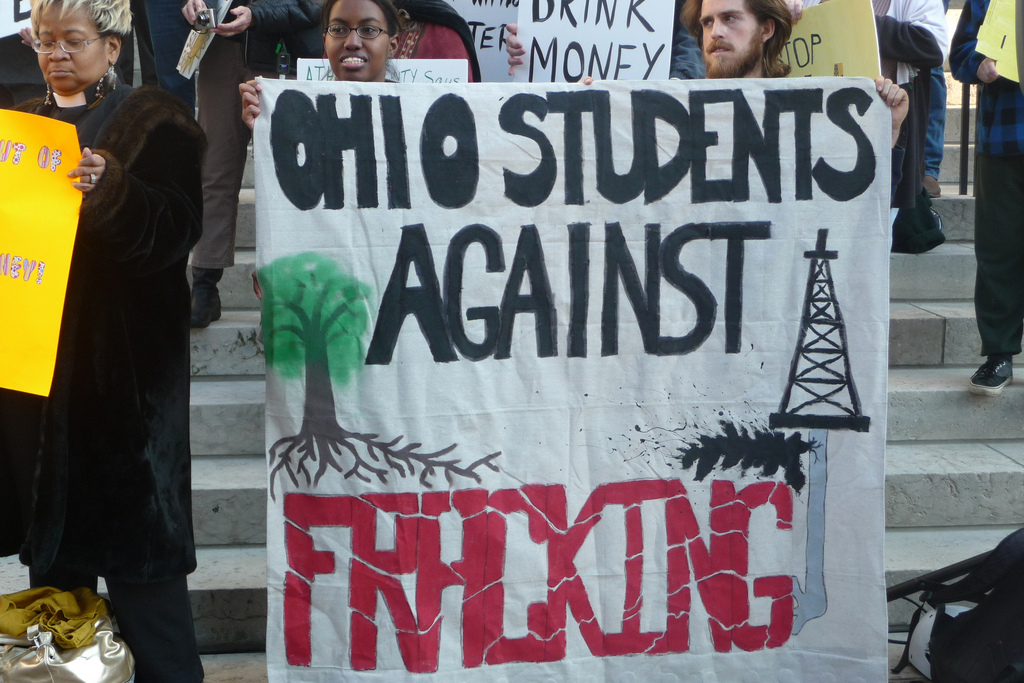Things just got a little worse for the owner of the Ohio fracking company whose employees were caught dumping fracking wastewater into the sewer system last month. Yesterday afternoon, the U.S. attorney for Ohio’s northern district announced federal charges against him.
From the Cleveland Plain Dealer:
U.S. Attorney Steven Dettelbach and Ohio Attorney General Mike DeWine announced the criminal charges against Ben Lupo, 62, of Poland, Ohio, at an afternoon news conference on the banks of the Mahoning River.
If convicted, Lupo faces up to three years in prison and a $250,000 fine.
Lupo, who co-owns D&L Energy, was directly implicated in the dumping.
The charges state that Lupo ordered Hardrock employees on at least six occasions to pump polluted waste into a storm drain, which led to the tributary and emptied into the Mahoning River about a mile away. The waste consisted primarily of salt-water brine, but also contained crude oil and benzene, Dettelbach said.
Two employees told investigators that Lupo actually ordered them to dump the polluted waste at least 20 times since November, and directed them to lie to investigators about the number of times they dumped the waste, according to documents related to the charges.
Lupo specified that the dumping should only occur at night and after all of the other employees had left the facility, according to an agent with the U.S. Environmental Protection Agency who conducted the interviews.
As the article notes, Ohio is sensitive about the quality of its waterways.
At Thursday’s news conference, Dettelbach said Ohioans have learned from past mistakes never to allow our rivers and lakes to be spoiled again by industrial pollution.
“Whether our water flows south to the great Ohio River, or north to the Great Lakes, whether [it] flows past a fisherman or into our kitchen, protecting and preserving clean and safe water in Ohio remains a major priority for the Department of Justice, the EPA and state regulators,” Dettelbach said.
One river flowing north to the Great Lakes caught fire in 1969, helping to spur a national push for cleaner water.
The wastewater dumped by Lupo and his employees isn’t likely to be as flammable, though it’s still not healthy for the environment. Exactly how unhealthy isn’t clear: Ohio has notoriously lax rules around reporting the composition of fracking water.
The charges against Lupo are nonetheless a significant action. As natural-gas fracking matures, it must evolve out of an anything-goes mentality. Establishing consequences for malfeasance is a bare minimum of what needs to be done — but at least it’s being done.





